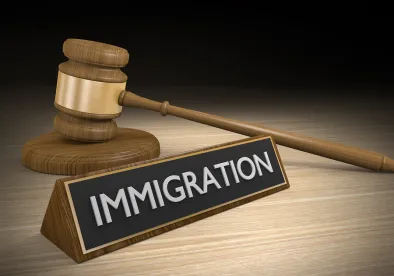On Monday, June 22, 2020 President Trump issued a new Proclamation that expands his temporary suspension of the entry of individuals to the U.S. This Proclamation follows a prior Proclamation of April 22, 2020, which temporarily suspended the entry to the U.S. of certain individuals who had recently been issued Immigrant Visas at U.S. Consular Posts abroad, and extends the April 22 Immigrant Visa travel ban through December 31, 2020. The stated goal of this new travel ban is to protect out-of-work Americans from competition from foreign workers.
Effective at 12:01 am on Wednesday, June 24, the travel ban suspends entry to the United States until at least December 31, 2020 of certain individuals seeking to enter the U.S. in H-1B, H-2B, L-1, and J-1 visa classifications. Specifically, the Proclamation impacts individuals who are 1) outside the United States as of the effective date of the Proclamation; and 2) do not have a valid nonimmigrant visa or other official travel document as of the effective date of the Proclamation. Individuals who are in United States or remain in the United States in one of these visa statuses, as well as individuals who are currently outside the United States and who already have a valid nonimmigrant visa as of the effective date of the Proclamation, are not impacted.
With a number of exceptions, individuals approved in the following visa classifications who are outside of the United States without valid visa stamps in their passports are prohibited from entering the United States until December 31, 2020:
- H-1B workers and their dependent family members;
- H-2B workers and their dependent family members;
- L-1 workers and their dependent family members; and
- J exchange visitors who are participating in one of the following exchange categories ‒intern, trainee, teacher, camp counselor, au pair, or summer work/travel program ‒ and their dependent family members.
At the present time, U.S. Consular Posts have suspended routine visa processing. The Proclamation instructs the Department of State to implement the suspension to visa applicants. It therefore appears that Consulates will not issue visa stamps to applicants in the impacted visa categories until after December 31, 2020. Even if Consulates do re-open and issue visa stamps to applicants (who do not currently have valid visa stamps) between now and December 31, 2020, as a result of this Proclamation, such individuals would not be permitted to enter the U.S.
The Proclamation exempts the following individuals from the entry ban:
- Any lawful permanent resident of the United States (which is not a true exemption, as a U.S. permanent resident would not fall into one of the above visa classifications);
- The spouse or child (as defined in section 101(b)(1) of the Immigration and Nationality Act), of a United States citizen;
- An individual seeking to enter the United States to provide temporary labor or services essential to the United States food supply chain; and
- An individual whose entry would be in the national interest as determined by the Secretary of State, the Secretary of Homeland Security, or their respective designees.
Regarding the final category above (national interest), the proclamation states:
“The Secretary of State, the Secretary of Labor, and the Secretary of Homeland Security shall establish standards to define categories of aliens covered by [the national interest section] of this proclamation, including those that: are critical to the defense, law enforcement, diplomacy, or national security of the United States; are involved with the provision of medical care to individuals who have contracted COVID-19 and are currently hospitalized; are involved with the provision of medical research at United States facilities to help the United States combat COVID-19; or are necessary to facilitate the immediate and continued economic recovery of the United States.”
The travel ban expires on December 31, 2020, but the Proclamation states that it “may be continued as necessary.”
In addition to this Proclamation, the Trump Administration has also signaled that it may take additional measures to restrict existing work authorization options for foreign nationals, and further restrict eligibility for H-1B visa classification. In this Proclamation the President has also instructed the Secretary of Labor to promulgate regulations or take other actions that may limit or restrict the employment-based green card application process for certain foreign nationals. There is no additional information available at this time on these potential restrictions.
This travel ban is likely to be the subject of litigation. This promises to be a rapidly evolving situation and we will provide updates as new information becomes available.






 />i
/>i

